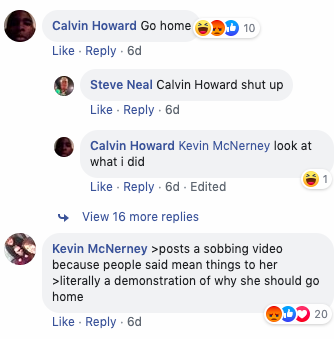For a few years as a teenager, I kept a secret. It wasn’t an “I stayed out past curfew” secret, or an “I got drunk at a party” secret, though at the time I thought those secrets would have been easier because they would have been “normal.” Instead, my secret had to do with something God had placed in me, a call to pastoral ministry, and I really didn’t know what to do with it. No pastor I knew was a woman. It seemed, though it wasn’t said directly, that women were limited in leadership opportunities at my church. It took a while, but I finally gathered up the courage to tell someone about my secret.
Sorta.
I was too scared to be direct. I was too uncertain of the response. At the same time, I longed to share it with someone and get some insight. I turned to a person I deeply admired, and instead of asking about women and pastoral ministry, I asked him about women and leadership. That seemed to be a safe question to me somehow.
“Can a woman be a leader in the church?” I asked hesitantly.
“No,” he said without much thought, “Women can’t be leaders because they’re too emotional.”
I was as angry at my response as I was surprised—I began to cry. I thought, “Dang it, I’m proving his point.” Then remorse and shame came. I regretted asking the question and felt ashamed of my tears.
The truth is my tears were nothing to be ashamed about. Emotions are gifts from God; they don’t disqualify us; they humanize us. In that moment, after reaching out to someone I trusted and respected and hearing his discouraging words, tears were the reasonable, logical response. I was heartbroken, deflated, and in grief. I wish I could go back to that time and tell nineteen-year-old Jenn to go on and cry.
In reality, my tears and I were in good company.
When Joseph was reunited with his brothers in Egypt, he wept so much it made the Egyptians uncomfortable.
When David sinned against Bathsheba, he cried and then cried out to God for forgiveness. He even wrote a Psalm about it.
When Jesus went to his friend’s grave, he wept, even though he knew he would resurrect Lazarus. And while looking over the city of Jerusalem, Jesus cried and said he longed to gather his people as a mother hen gathers her chicks, but they would not come.
Joseph. David. Jesus. Good company.
Since John MacArthur told Beth Moore to “go home,” social media has been in a frenzy in Christian circles. Moore has not been the only female leader told to go home. In a raw and vulnerable post, Jory Micah shares a video in which she discusses the effects MacArthur’s words have had on her personally (see link below). Sadly but not surprisingly, she has also been attacked by others’ comments for being so vulnerable.
To my sister, I say, cry on. I will join you. Let us wept over the hateful things brothers and sisters in Christ say to one another. Let us mourn over our inability to dialogue and disagree with grace. Let us grieve that not all see women as the image-bearers, gifted and called by God, that they are. The reasons for our tears are worth time and space and respect.
Movement Step: Thank a woman pastor or leader in your life today. Their road to where they are was not smooth, but they took it anyway because the One they loved most beckoned them. Pray for them today and every day.





Jessica
This is an amazing post Jenn! I’m cheering for you and other women who are blazing a trail for those to come! I praise God for the call on your life. The world needs to hear this message. Thank you for doing your part!!
Jenn Smith Chen
Thank you so much for your kind words and encouragement! I appreciate it very much. It matters that we do our part together, and your support is so valued!